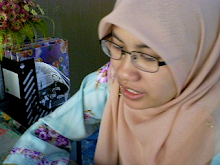Chapter 1: Introduction to Biology
Learning Area - The Study of Biology
Learning Objective - Understanding the study of Biology
Learning Outcomes - A student is able to :
• state what the study of Biology is,
• explain the importance of Biology,
• list the different fields of study in Biology,
• list the careers related to Biology,
• state various ways of studying Biology.
Definition of Biology
Biology is derived from 2 Greek words "bios" and "logos". "Bios" means life and "logos" means life.
Biology means the study of living things,their life processes and their interaction with each other and their interaction with the environment.
The Importance of Biology
1. Enables us to understand life.
2. Helps us to understand how each species fit into the dynamic pattern of life on Earth.
3. Enables the discovery of many important advances in biotechnology, medicine and genetic engineering.
4. Help us in preserving and managing the environment
Benefit of Biological Research
1. A better understanding of how human body function.
2. Finding cures for diseases.
3. Saving endangered species which are on the verge of extinction.
4. A better management of problems related to the environment.
Fields of Study in Biology
1. Zoology = study of animal
2. Botany = study of plant
3. Ecology = study of ecosystem
4. Biotechnology = study the use of microorganism to perform specific industrial processes
5. Physiology = study of functions of living organism and its part
6. Taxonomy = study of classification of organism
7. Microbiology = study of microorganism
8. Anatomy = study of internal structure and organization of organism
Careers Related to Biology
1. In fieldwork such as ecological researcher
2. In laboratory work such as testing of products, quality control of pharmaceutical and health care products
3. In health care such as radiographers, occupational therapists, pharmacists, physiotherapists, nurses, optician, doctors and surgeons.
Various Ways of Studying Biology
1. Use of technology
2. Project work
3. Fields trips
4. Group discussion
5. Doing experiment
skip to main |
skip to sidebar

Mata menyapa jiwa
Search
About Me
Biology Form 4
- biology chapter1 (2)
- biology chapter2 (4)
- biology chapter3 (5)
- biology chapter4 (1)
Science Form 1
- chapter1 (6)
- chapter1 (other resources) (2)
- chapter2 (2)
- chapter3 (2)
Syllabus
Hello My Dear Students!
I have secrets of success to share with you all. Hope you can make use of them.
1. Unrelenting effort
2. Faith in intention
3. Patience and perseverance
4. Focus
5. Discipline
6. Gradual progress
7. Avoid blind following
8. Get counselling
9. Making use of opportunities
10. Firm determination
11. Awareness of circumtances and conditions
12. Courage and fearlessness
13. Self-sacrifice
14. Never give up on difficulties and calamities
15. Accepting the reality
16. Being flexible
17. Perform today's work in a way better than yesterday.
1. Unrelenting effort
2. Faith in intention
3. Patience and perseverance
4. Focus
5. Discipline
6. Gradual progress
7. Avoid blind following
8. Get counselling
9. Making use of opportunities
10. Firm determination
11. Awareness of circumtances and conditions
12. Courage and fearlessness
13. Self-sacrifice
14. Never give up on difficulties and calamities
15. Accepting the reality
16. Being flexible
17. Perform today's work in a way better than yesterday.
Think!! It takes hundreds of chemical actions and reactions for a small plant to become a BIG TREE

Blog Archive
Gets The News Around You
Followers
Search This Blog
(c) 2009. Kelas Budi. Powered by Blogger
Blogger Templates created by Deluxe Templates
Wordpress designed by Roam 2 Rome.
Blogger Templates created by Deluxe Templates
Wordpress designed by Roam 2 Rome.

No comments:
Post a Comment